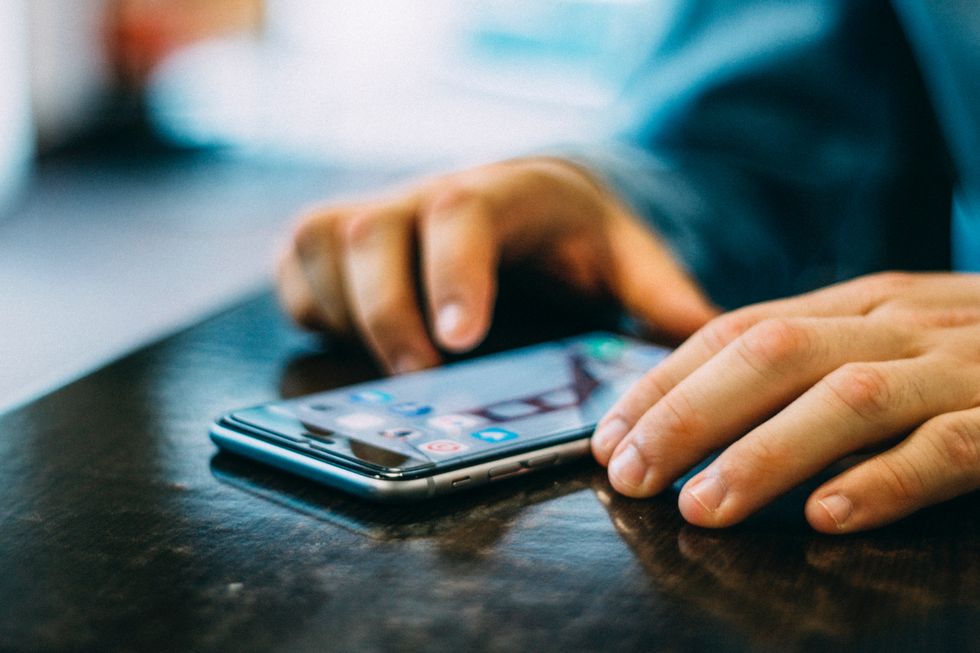When you think of the single possession you own that you would risk anything for or couldn't live without, take into consideration how vastly different this question must appear to each individual. Think about how many possessions the average 20 year old must have collected over their lives from the people that they've known and places they have traveled to, and yet 84% of people would choose their phones over anything else.
If this doesn't sound like a problem to you, maybe the accompanying higher risk of mental health due to phone addiction should. Time spent on social media, or even just googling when Prince Harry was born, is time that you are not spending speaking to others and forming meaningful connections, or daring to be present for your own thoughts and listening to your worries.
The good news is that taking time away from your phone does not mean you have to become a hermit, in fact, there are several ways for you to do it, of which two will be discussed here. Ease yourself into a phone detox with the right preparedness and come out feeling happier and more focused.
The easiest way to introduce a radical new habit can be accomplished by limiting your smart phone usage for a single, 24 hour period. This is a period where you designate I-cannot-be-on-my-phone time and you need to be clear that it's not "I don't want to be on my phone" it's "I cannot be on my phone." And you don't have to lose friends over it, just try to tell them, or any professors or bosses, in advance.
Obviously, people have jobs, especially during the summer, that they need to keep up with. However, this can be as simple as putting your phone on silent and left in a coat pocket that you leave by the door. If you're looking at a desktop all day, use that instead of scrolling through your messages or checking your personal email every 6 seconds.
On the other hand of this approach, you can merely put time aside each day where you don't look at your phone. Either 45 minutes or 3 hours, the duration itself is minimal here. This ensures no one's SnapChat score is broken or an important work update is missed.
It's a habit like any other and can be at a fixed time every day, like 2 pm to 4 pm, or move your charger slightly farther away when you settle in for bed to help you fall asleep. The question becomes at this point what your motivations are for committing yourself to this significant habit adjustment.
This is where the importance of this commitment comes it, and it's definitely a worthy habit that will show benefits over a long period. Maybe we should have paid attention when Steve Jobs put restrictions on the screen time his kids were exposed to as early back as the iPad's release in 2010.
It comes down to your ability to monotask, covered in this New York Times article in 2016, that starts off by daring you to read the entire article without scrolling out or losing focus for one second (I know not to be so bold, it's called baby steps people). Even if "monotasking" isn't a word that catches on, it still speaks to our inability to allow one thing to hold all of our attention for more than a few seconds or sentences. How do you think this may be affecting your day-to-day life?
Obviously, you can't just kick your phone to the curb forever, especially as the physical world and the digital world become more intertwined, but you can still relieve some stress in your life by keeping your phone away from you, get better sleep, and even (weird fact). Maybe something to try after the semester ends. At the end of the day, does anything live or die solely based on your immediacy to respond to a text or post a tweet every 11 minutes?





 Lumiere figure at the Disney Store at the Ala Moana Shoppi… | Flickr
Lumiere figure at the Disney Store at the Ala Moana Shoppi… | Flickr








 StableDiffusion
StableDiffusion StableDiffusion
StableDiffusion 10. Extra BlanketsJuwenin Home 100% Cotton Knitted Throw Blanket
10. Extra BlanketsJuwenin Home 100% Cotton Knitted Throw Blanket StableDiffusion
StableDiffusion StableDiffusion
StableDiffusion File:Kishlaru familie.jpg - Wikimedia Commons
File:Kishlaru familie.jpg - Wikimedia Commons Photo by Hanna Balan on Unsplash
Photo by Hanna Balan on Unsplash StableDiffusion
StableDiffusion black blue and yellow round illustrationPhoto by
black blue and yellow round illustrationPhoto by 





 woman holding glass jar
Photo by
woman holding glass jar
Photo by 








